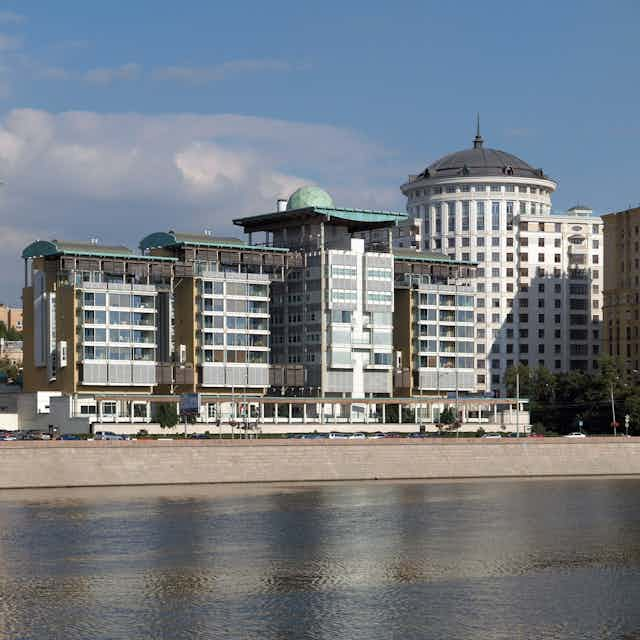A recent word to enter the lexicon of those interested in the murky world of spies and skullduggery is “Kompromat” – the Russian art of obtaining compromising material on prominent individuals in order to exert leverage over them. Since the term came to light recently in the case of the dossier compiled about Donald Trump’s visits to Russia, a number of articles have detailed cases where individuals have found themselves in hot water from misguided actions, which have led in turn to scandal, disgrace and the premature ending of careers.
Recently released Cabinet Office documents from the 1990s – now available at the National Archives – clearly show that the British authorities were very well aware of the existence of such operations and took the threat they posed particularly seriously. The documents also illustrate that such operations were not solely a Soviet specialism.
While much official material on this subject, some of which dates back to the 1950s and 1960s, remains closed to the public under Section 3.4 of the Public Records Act, minutes of Whitehall’s Personnel Security Committee, dated December 1990, show the extent to which such activity was known and the advice provided to counter it.
The committee, which is housed in the Cabinet Office and includes representatives from the Security Service (MI5), Government Communications Headquarters (GCHQ) and the Atomic Energy Authority, met on December 19 1990 to discuss issuing “new guidance on travel to countries presenting a special security risk”.
Meeting in the context of the fall of the Berlin Wall, the proposed changes offered “a general relaxation on travel restrictions” . This meant that only those in “EPV [extended positive vetting] and PV(TS) [positive vetting (top secret)] posts” would be obliged to seek permission for recreational travel to certain countries. But, at the same time, there was a clear awareness of the continuing dangers posed by travel to particular destinations.

The revised guidance noted that: “The rules on ‘Travel to Communist Countries’ … have been revised in the light of the recent changes in Eastern Europe”. Interesting to note: the term “Communist countries” had now been replaced with “countries presenting a special security risk”. The countries of most concern – “List A countries” – were detailed in an annexure. They were Afghanistan, Albania, Bulgaria, Cambodia, China (including Tibet), Cuba, Laos, Mongolia, North Korea, Romania, the Soviet Union and Vietnam.
Pitfalls and entrapment
The authorities were under no illusions as to the potential dangers raised by a visit to these countries. They warned that government employees would be on the radar for potential entrapment as soon as they filed their visa applications. Unsurprisingly, officials from the Foreign Office and the Ministry of Defence were considered the biggest potential risks, “regardless of the degree of clearance of the official in question”.
“Having identified a person of interest”, the document continued, “the intelligence service may seek to gain control over that person whilst they are in the country concerned”.
Such control could be achieved through various means, including surveillance, eavesdropping and clandestine entry along with “other operations and entrapment ‘ploys’.” These included “sexual involvement” – a polite way of saying “honey trap”.
While the Soviet Union was top of the list in terms of conducting such operations, it was not alone:
The Russian Intelligence Service, the Chinese Intelligence Service and other intelligence services use the threat of exposure, following sexual involvement with a local, in order to blackmail visitors into working for them. The intelligence service may “arrange” the liaison itself, or may exploit a spontaneous liaison; visitors should therefore be wary of entering into any friendship which might attract the attention of the local intelligence service.
In addition to sexual liaisons, the document warned of involvement in currency transactions, dealing in black market goods and carrying “certain types of correspondence or literature”. Visitors detained by the local authorities as a result of failing to avoid these pitfalls “may be approached by the local militia or the local intelligence service which might seek to extract a promise of cooperation with the authorities in exchange for an undertaking that no charges will be preferred. Such undertakings should not be given if they can be avoided”.
Given recent allegations, one can only hope that the Personnel Security Committee continues to impress upon British politicians and civil servants the potential dangers of certain forms of behaviour abroad. Yet, in an era when such warnings have allegedly led to low-ranking official visitors making efforts to puff up their importance in the hope of attracting the attention of their hosts’ charms, ultimately such proactive preventative action on the part of the authorities can only go so far in protecting individuals from the very human frailty of foolish behaviour.

